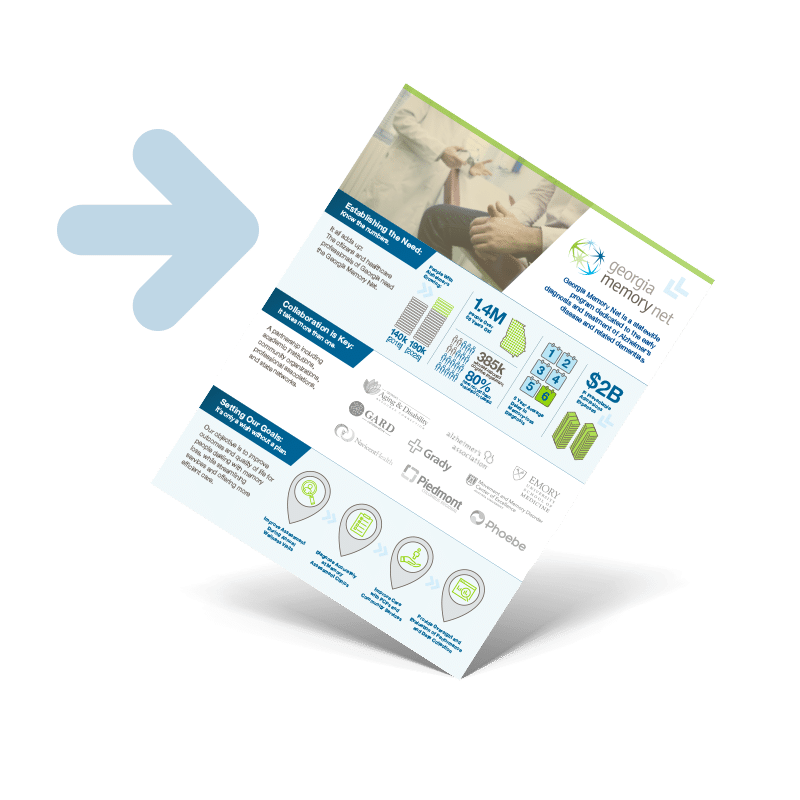How to Recognize the Subtle Early Signs of Alzheimer’s
Based on the inconsistent coverage in the media, when you read about or see Alzheimer’s in the news, you probably fall into one of two camps: either you feel that memory loss is the primary and only symptom of the disease, and therefore you would “know it if you saw it,” or you come away with confusion on what Alzheimer’s really is, and are afraid you would miss key early signs of Alzheimer’s if they were present in a loved one (or yourself).
We’re here to give you some straight facts on how to identify symptoms so that you can be prepared to seek further advice and evaluation if you witness any of the following symptoms. Remember, there can be other causes, many completely benign, for the symptoms listed here. This should only be used as a guide to gain some understanding on when it might be time to see a clinician.
Here are some signs of Alzheimer’s:
Falls
Brains scans show a correlation between frequent falls and Early Onset Alzheimer’s symptoms. Dr. Natasha Travis with the Emory Memory Assessment Center related a personal story on the relations between Alzheimer’s and falls. “I had a patient that was falling quite a bit and I honestly thought it was just her poor balance,” the physician explained. “But I found out that that when she went to bed, she would wake up wake up out of her sleep and couldn’t remember where she was. She ended up literally having advanced Alzheimer’s disease.”
Understanding functionality
Similar to the experience of Dr. Travis, a person who is aging normally might forget where they left their wallet or keys. But if they cannot remember what a key if for, or why they need to carry a wallet in the first place, that can be one of the early signs of Alzheimer’s.
Bad eating habits
We all tend to have our guilty pleasures, but signs of Alzheimer’s go beyond eating that extra slice of cake. It’s possible for someone showing early signs to display a serious change in eating habits or try to eat something that’s actually inedible. The theory is that Alzheimer’s or other related dementia may be causing the brain to receive hunger signals, but it has lost the ability to process them properly.
Subtle nuances lost
We all may sometimes be clueless when faced with subtle humor. But if someone regularly cannot pick up on something like sarcasm, it could be an early sign of Alzheimer’s.
Depression
Clinical depression over age 50 could also be a signal for Early Onset Alzheimer’s. In this case, it’s someone who did not suffer from this issue previously, but developed it later in their life. Seeking treatment as soon as possible in this situation can have a real impact, as some experts have a suspicion that hormones released during depression may cause damage that can lead to Alzheimer’s or other forms of dementia.
Speaking of treatment, the absolutely essential thing to keep in mind if you experience, or see family members experiencing, any of these symptoms is to contact your doctor immediately. Effective screening exists to get to the core problem that is causing these symptoms and treatments exists that can improve quality of life, or in the case of many non-Alzheimer’s related illness, dramatically reduce the symptoms altogether.
Never, ever, live in a vacuum. Learn how to recognize the early symptoms of Alzheimer’s, and then move forward knowing that you can take the right steps if you’re ever facing this serious disease.
Georgia Memory Net at a Glance
What is Georgia Memory Net and why does it exist? There’s so much information about Alzheimer’s and related dementias in Georgia, and how to diagnose and treat them, that it can become overwhelming. We’ve done our best to simplify the info into a clear one-page infographic.



